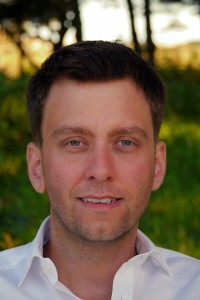Program on Science, Technology and Society at HarvardHarvard Kennedy School of Government | Harvard University |
|||||||||
|
|
Kasper Hedegaard Schiølin is a Visiting Postdoctoral Fellow with the Program on Science, Technology & Society (STS) at the Harvard Kennedy School of Government funded by The Carlsberg Foundation. While at Harvard, Kasper will lay the foundation for a fresh project about perfection and technology. His hypothesis is that new technologies are accompanied by socio-technical imaginaries of human perfection, both at a societal and at an existential level. To substantiate this, the project will study the so-called “Fourth Industrial Revolution”, a notion recently coined by the World Economic Forum at their 2016 annual meeting in Davos, as an epochal designation of the present.By close readings of text, and even more important visuals, that were released in different national contexts before, under, and after the meeting the project aims to show that rather than being a detached diagnosis of what the world currently is, the Fourth Industrial Revolution is a striking, highly elitist and exclusive socio-technical imaginary about what the world ought to be, which curtails public reasoning and engagement that are not somehow predisposed. Kasper holds a PhD in History and Philosophy of Technology from Aarhus University (2015), and a BA and MSc in Information Technology from the same place. Since 2010 he has been a regular member of Centre for Science and Technology Studies at Aarhus University, who arranges and hosts research and teaching activities every semester. Kasper’s PhD dissertation is a piece of Intellectual History about “technological pessimism” in the early Philosophy of Technology (1925-1955). This pessimism is not, however, a pathological kink, but a shared fundamental, yet so far neglected, metaphysical inclination to interpret technology metaphysically as an unruly and destructive manifestation of the will. The dissertation demonstrates that this distinctive metaphysic of technology is derived from the philosophical pessimism of the 19th century, in which the will presides over reason as the superior feature of the human being. Publications:
Teknologi [Technology]. Aarhus: Aarhus University Press (Forthcoming book 2016).
“Lost in Translation: Getting to grips with multistable technology in an apparently stable world”, in Cathrine Hasse et. Al (eds.) Postphenomenological methodologies: New ways in mediating techno-human relationships. Lanham, Maryland: Rowman & Littlefield International (Forthcoming bookchapter 2017; coauthored with Lasse Blond).
Follow the verbs!: A Contribution to the Study of the Heidegger–Latour Connection, in Social Studies of Science 42(5), pp. 776-787.
Note: The above information concerns a past fellow at the Program on Science, Technology, and Society at the Harvard Kennedy School. It does not constituent evidence of current enrollment. The information may be out of date. To update their information, past fellows should e-mail the site administrator.
|
||||||||
